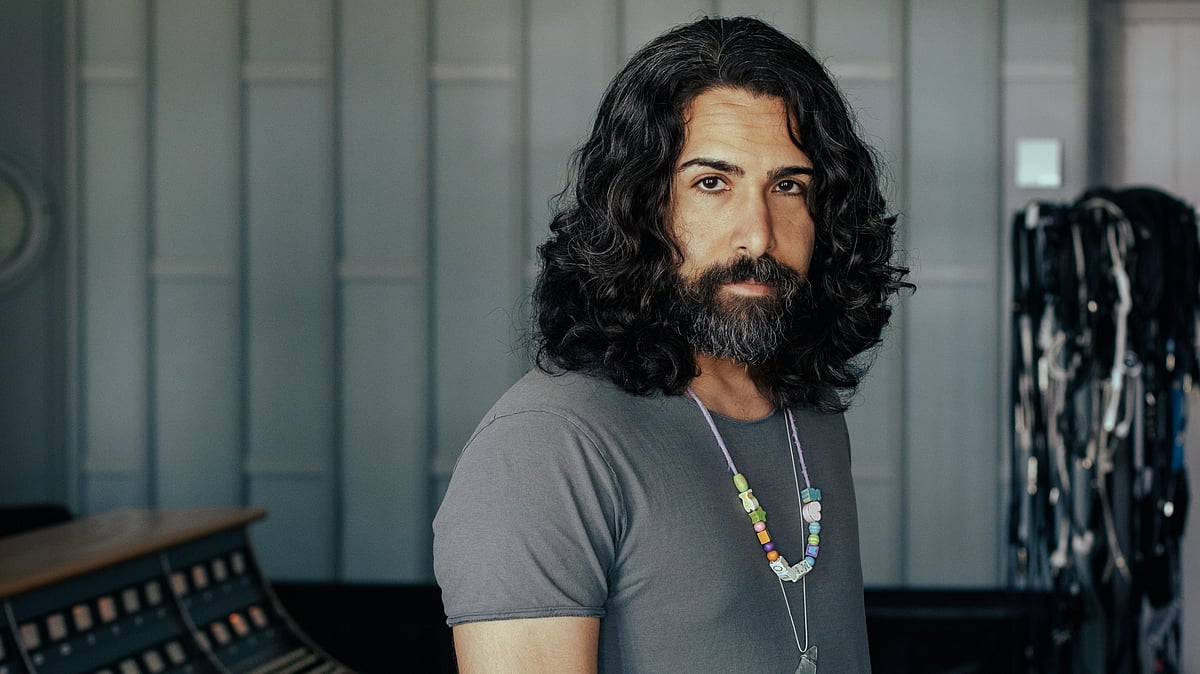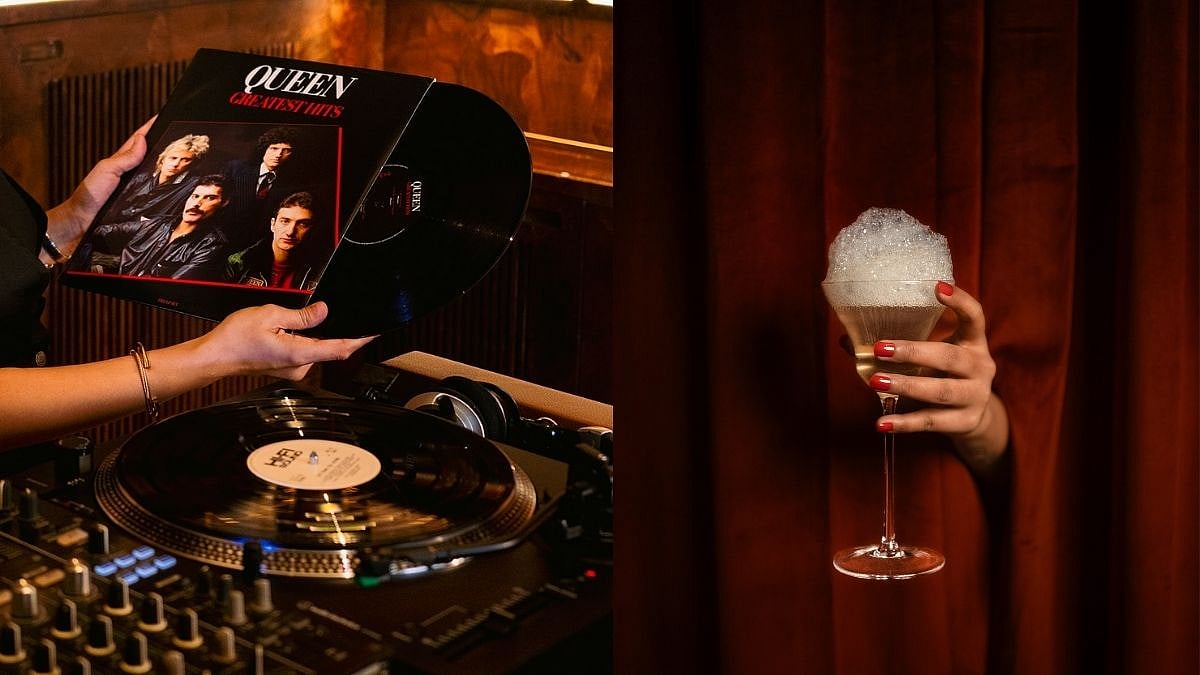Internationally acclaimed British producer and DJ TroyBoi recently released his most personal and culturally significant project the EP ‘Rootz’ consisting of five tracks. This collection has a sample of the legendary Lata Mangeshkar’s ‘Kabhi Khushi Kabhie Gham’ in his song Khabi. His work is a blend of his signature trap and bass style with the rich traditions of Indian, Punjabi, House, and Hip-Hop music and is a vibrant tribute to his Indian heritage and a reflection of the sounds that shaped him from childhood.
With his mother of Indian descent, TroyBoi grew up surrounded by Indian culture from food and films to music. His EP aptly titled, ‘Rootz’ captures that lifelong connection of his roots
In an exclusive interview, TroyBoi with his Indian, Chinese, Portuguese, and Nigerian descent, shares his journey fusing all his music and cultural influences in his work.
Excerpts from the interview:
You recently a new EP ‘Rootz’, for which you collaborated with several Indian artistes. What’s the overall sound and vibe of the album like?
The sound of Rootz is inspired by my cultural heritage from my mother’s side. It’s a fusion of my signature production style with the rich textures of Indian music. It’s heavy, soulful, and cinematic, but also deeply personal. Each track reflects a different part of my journey, tying in culture, rhythm, and emotion. I wanted it to feel both global and rooted in tradition.
You’ve worked with Jazzy B, Amrit Maan, and BombayMami on this project. How did these collaborations come about, and what qualities were you looking for in your collaborators?
I’ve always admired these artistes for how authentic they are to their craft and culture. Jazzy B is a legend, Amrit Maan brings raw energy and BombayMami represents the future with her unique edge. When we connected, it wasn’t just about music, it was about chemistry, respect and a shared vision of bridging cultures.
How would you describe your creative process and the energy in the studio when you’re making music? With Indian roots, do Indian instruments often find their way into your productions?
My creative process is very organic, I don’t like to force anything or over think. I let the music flow and eventually write itself. Sometimes it’s a melody that sparks an idea, other times it’s a vocal sample or rhythm. Indian instruments naturally sneak into my productions because of my heritage; the sitar, tabla and vocal chops really resonate with me.
You’ve mentioned that you and your mother watched ‘Kabhi Khushi Kabhie Gham’ many times. What was her reaction when you sampled the legendary Lata Mangeshkar’s ‘Kabhi’ for your track?
She was emotional. To her, Lata Mangeshkar is the voice of India and that film is tied to so many memories we shared together. When she heard my version, she told me how proud she was that I honored the song with respect while making it my own. That meant everything to me.
Was it challenging to navigate the legal side of using the ‘Kabhi’ sample?
Yes, it was definitely a process. When you’re dealing with such an iconic song, the clearance has to be handled carefully and respectfully. But my team and I were very determined because it was so meaningful to me. In the end, it was worth every step to do it the right way.
‘Baaghi 3’’s track Do You Love Me was a direct lift from your 2019 song Do You. The music video of ‘Baaghi 3’ had a similar flair to your music video. Could you share your thoughts on that experience and how it was resolved?
I was honestly shocked because it was a blatant copy. At first, it was frustrating because they claimed they weren’t inspired by ‘Do You?’ at all. At the end of the day it was a reminder of how far-reaching my music has become that even Bollywood noticed.

You produce across multiple genres, including trap and dub step. When you create new music, do you set a direction beforehand or let the feeling guide you?
I never box myself in. I always let the feeling guide me because music is about emotion. If I sit down and try to force a particular type of track, it won’t come out. But if I let inspiration lead, the sound naturally finds its place.
You have Indian, Chinese, Nigerian, and Portuguese roots. Beyond Indian influences, have you incorporated elements from your other cultural backgrounds into your music or while on tour?
Definitely. My Nigerian roots inspire rhythm and groove, my Chinese background influences melodies and textures, and Portuguese culture adds a soulful, almost nostalgic flair. Traveling also fuels my creativity and hearing new sounds and instruments on tour always finds its way into my productions. I’m always ready with my voice note app on my phone to record sounds for inspiration.
What makes a TroyBoi track instantly recognisable to listeners?
The attention to detail. I use unique samples, unexpected drops and rhythms that don’t follow the typical formula. There’s always a twist. Something that makes you stop and say, “That has to be TroyBoi track.”
Your real name is Troy Henry. What inspired you to adopt the stage name “TroyBoi”?
It started as a nickname among friends and it stuck. It felt natural to bring it into my music career because it represented me in a personal way, but also had that playful, memorable edge.
You’ve toured India in the past. What are some of your favourite memories of the country and its people?
The energy of the crowds in India is unlike anywhere else. People are so passionate, warm, and welcoming. I also loved exploring the food and culture, those moments stay with me long after the shows.
Do you have plans to visit India soon to promote your EP ‘Rootz’?
Yes, absolutely. India is such a big part of this project, and I can’t wait to bring Rootz to the people who inspired it.
Is there a Bollywood song on your bucket list that you’d love to sample?
There are so many classics I’d love to touch. I can’t lie, there was another song that I made for the EP but unfortunately I could not get the sample that I used cleared. Maybe one day it will.
Are there any Indian artistes you’d especially like to collaborate with in the future?
AR Rahman is a dream collaboration. His music transcends boundaries and has such depth. I’d also love to work with some of the new wave of Indian hip-hop artistes bringing a fresh voice to the scene. Hanumankind, Karan Aujula, AP Dhillon and Diljit Dosanjh would be awesome to collaborate with.
Finally, what upcoming projects are you currently working on?
I’m already experimenting with new sounds and ideas beyond Rootz. I don’t want to say too much yet, but expect more collaborations, more cultural fusions and music that continues to surprise people.
For someone who has never heard your work before, how would you describe “the TroyBoi sound”?
After producing for many years I’ve developed a signature style. My sound blends heavy-hitting drums with intricate details, unexpected samples and cultural influences. It’s unique, unpredictable and I always try to push the boundaries. When you hear my music, you’ll know it’s produced by me.
Who have been your biggest musical influences over the course of your career?
Producers like Timbaland and Pharrell really shaped me early on. They taught me that rhythm and originality are everything. I’ve also been inspired by global artistes who fearlessly blend genres and cultures. Michael Jackson has always been my favourite artiste, he was a musical genius and incredible performer.
How was your experience growing up in London, and what struggles did you face on your journey into music?
Growing up in London exposed me to so many cultures and sounds, which shaped my ear. The struggle was breaking into the music scene. It wasn’t easy to get noticed and I had to work relentlessly on my sound and identity. But those challenges built resilience, which I carry with me today.









